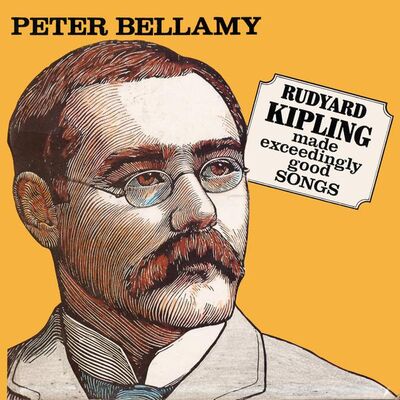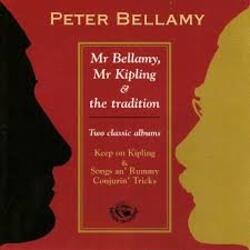
I ’ve always enjoyed folk songs from various languages, and one source of folk music I’ve long appreciated is Rudyard Kipling. While best known for his Jungle Book (which most people have seen as an animated movie) and his poem If, many might not realize that he also wrote songs and ballads.
Kipling’s musical works often relate to military themes, exoticism, the navy, and folklore. From Oak, Ash & Thorn, Smuggler’s Song, and Puck’s Song from his novel Puck of Pook’s Hill (a collection of fantastical stories from various parts of English history after a group of children meet the elf Puck), to Back To The Army Again, Big Steamers, and We Have Fed Our Sea, which were released in gazettes, poetry collections, and other magazines.
One of my favorites is Oak, Ash and Thorn, sung by Puck himself (called The Tree Song) in the aforementioned novel. It’s a hymn to the three ancient trees - oak, ash, and thorn - which have always grown in England. They have witnessed Aeneas’ son Brutus come and found London as “New Troy Town”1. They provide bows, shoes, and bowls, and a shade that no one does wrong to sleep in.
Yew that is old in churchyard-mould,
He breedeth a mighty bow.
Alder for shoes do wise men choose,
And beech for cups also.
But when ye have killed, and your bowl is spilled,
And your shoes are clean outworn,
Back ye must speed for all that ye need,
To Oak, and Ash, and Thorn!
Poor Honest Men is a lament of tobacco smugglers as they travel from America to Ye Olde England. On their way, they must slip past British cruisers, foreign ships, Napoleon’s Embargo “which is laid on all cargo”, and the law itself lest they be treated as dirty smugglers instead of the ‘poor honest men’ they claim to be. With Song of the Red War Boat, we board the ship of a Norse crew loyally following and searching for their master. However, Odin is angry with their master and therefore angry with them. As they sail the sea:
The thunder below and clamor
The harm that they mean to do!
There goes Thor’s own Hammer
Cracking the dark in two!
Despite this, they continue since “a man must stand by his master” - their loyalty endures even the wrath of the gods. The Song of Men’s Side is a beautiful story told by neolithic flint workers. They tell us of the great perils they faced at the hands of “The Beast” which:
[…] only grinned at our spears round his ears
Grinned at the hammers that we made;
But then the great god Tyr came and:
went to the Children of the Night.
He begged a Magic Knife of their make for our sake.
Tyr sacrificed his eye and hunted The Beast, which fled, “is dismayed at the Blade”. Now the flint workers can live in peace and no longer have to fear the “Shepherd of the Night”.
Peter Bellamy and the Young Tradition: Keeping Kipling’s Songs Alive and Celebrating Folk Music

Peter Bellamy, a folk singer, was perhaps one of the main reasons why Kipling’s songs remained somewhat in the mainstream. With a passion for all kinds of folk music, he took an interest in turning Kipling’s ballads from his novels into songs. His aptly named album Rudyard Kipling Made Exceedingly Good Songs focused on the maritime and martial poems of Kipling, while Keep on Kipling and Song’s an’ Rummy Conjurin’ Tricks feature all manner of songs such as Mine Sweepers, a history lesson with The Dutch at Medway, and a recommendation to keep cold iron nearby with Cold Iron.
Bellamy did not only vocalize Kipling’s works. Mainly Norfolk is a collection of various poetry from Norfolk and the surrounding area. Both Sides Then, another potpourri, features fantastic folk songs like Barbaree.
His group, The Young Tradition, was dedicated to reviving old folk songs and produced works like What Wondrous Love is This and the perhaps rather famous Agincourt Carol.